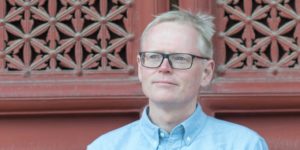
Journalist Ian Johnson will soon publish his groundbreaking book The Souls of China: The Return of Religion After Mao. For the New York Times he selected a special story, on how president Xi Jinping became the guardian of Buddhism and other traditional believes, and today uses it, not as an object for repression, but as a part of China’s globalization strategy.
Ian Johnson:
In 1982, two men arrived in this dusty provincial town. One was Shi Youming, a Buddhist monk who was taking up a post in the ruins of one of Zhengding’s legendary temples. The other was Xi Jinping, the 29-year-old son of a top Communist Party official putting in a mandatory stint in the provinces as a bureaucrat in the government he would eventually lead.
The two forged an unusual alliance that resonates today. With Mr. Xi’s backing, Youming, who like most Buddhist monks preferred to go by one name, rebuilt the city’s Linji Temple, the birthplace of one of the best-known schools of Buddhism. Even after Mr. Xi was transferred, he regularly visited Youming in Zhengding and sent officials there to study the partnership between the party and religion.
Mr. Xi’s early encounters with religious life give insight into a man who has run China with a firmer hand than any other leader since Mao Zedong. Although he is best known abroad for his efforts to expand China’s territorial reach in the South China Sea or his high-profile campaign against corruption, at home the president is engineering a remarkable about-face for the Communist Party: an effort to rejuvenate China’s spiritual life through an embrace of some religions.
As an organization that has tried to squelch religion, the Communist Party under Mr. Xi is now backing it in ways that echo the approach of strongmen like Vladimir V. Putin of Russia, who use faith to legitimize their rule. Faced with growing social tensions and slowing economic growth, the government is turning to religion to bolster its hold on power.
Mr. Xi, by making China a guardian of a major faith like Buddhism, also sees religion as a way to promote China’s position in a world still dominated by the United States, which he tentatively plans to visit for a meeting with President Trump early next month.
Indeed, one of Mr. Xi’s signature lines is, “If the people have faith, the nation has hope, and the country has strength.”…
I’ve found that Mr. Xi’s embrace of faith is incredibly popular among most Chinese. While Christians may cringe at his views, many more others see his support for traditional faiths as positive — a re-creation of the imperial Chinese state’s support for certain faiths and belief systems. Far from being an anomaly in Mr. Xi’s rise, his stint in Zhengding is most likely something else: a template for the mixing of faith and politics — a reimagining of the political-religious state that once ruled China.
Much more in the New York Times.


